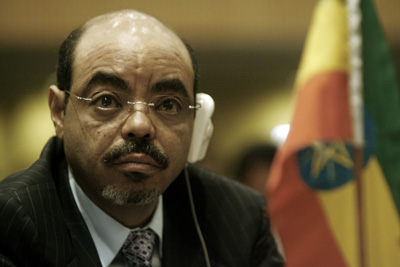
In Ethiopia, anti-terrorism law chills reporting on security
How can an Ethiopian reporter cover the activities of Ethiopia’s leading opposition figure, Berhanu Nega, or an attack by the Ogaden National Liberation Front (ONLF) rebels without risking prosecution and a 20-year prison sentence? Such questions have haunted Ethiopian journalists since a far-reaching anti-terrorism law came into effect in 2009. The law criminalizes any reporting…
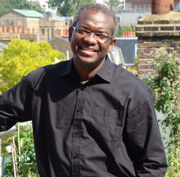
In exile: From a Cameroonian jail to immigration limbo
I was arbitrary and unlawfully arrested and detained in a heavily secured military police detention facility in Cameroon for 40 days. I had to bribe my way out of the country to seek sanctuary and protection. Cameroon is a dictatorship dressed up as a fake democracy, with a leader in power for more than 29 years. As…
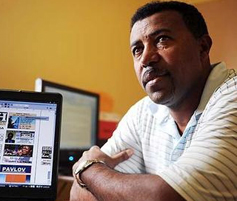
CPJ’s exiled journalists survey: Behind the numbers
In 2007, my colleague Karen Phillips suggested we do something to mark World Refugee Day. Initially planning to publish a brief statement, I set about reviewing our data for background, checking in with older journalist cases about their current situation and looking broadly for trends to highlight. As the number of cases began counting into…
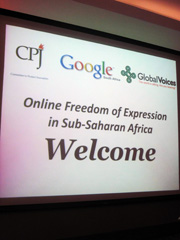
The Internet in East Africa: An aid or a weapon?
Frank Nyakairu has seen it all. A veteran war reporter, he has covered the horrors of northern Uganda and Somalia, among others places. And throughout this time of rich but often appalling experiences, he has also seen the auspicious–and sometimes terrifying–impact the Internet has had on East African reporters. Nyakairu spoke at a recent workshop held…
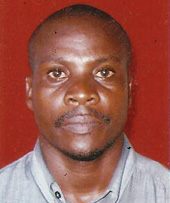
Acquitted: A Kenyan journalist struggles to report freely
A court in Kisumu, western Kenya, recently acquitted journalist Bernard Okebe, at left, of graft charges after a two and a half year case against him. While the case is finally over, Okebe is still dealing with the fallout of being accused of blackmail.In December 2008, the police chief of Nyamira, a town in western…

In journalist security field, maturing and understanding
Journalist security is still a maturing field, but news organizations are devoting more attention to preparing their reporters and photographers for the dangers particular to the profession. That means understanding risks that are constantly evolving. The brutal attack on CBS correspondent Lara Logan at a Cairo demonstration has drawn worldwide attention to the issue of…
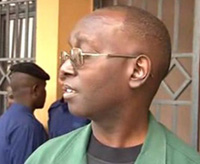
Journalist freed in Burundi vows to keep reporting, carefully
As recently as April, the state prosecutor in Burundi demanded journalist Jean-Claude Kavumbagu be put away for life. But just a month later, Africa’s only jailed online journalist was a free man. A relentless international campaign by press freedom groups, human rights activists and Western governments had paid off.
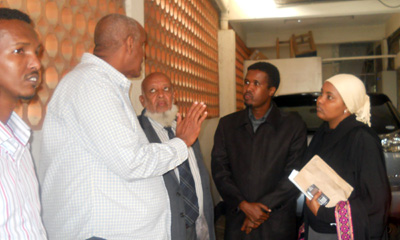
Exiled Somali journalists rally around wounded colleague
Hassan Mohamed, nicknamed “Jaeyl” by his colleagues, used to be a jack-of-all-trades for Somalia’s first independent broadcaster, HornAfrik. He was a journalist, a producer, and a librarian. He was even a dramatist. His most powerful professional role was keeping HornAfrik running when most senior staff members fled the country, fearing for their lives.
Video: ‘Living in silence: Journalists in exile’
We write a lot at CPJ about the terrible things that happen to journalists because of their reporting, but we don’t often get a chance to show you what happens to them after they are forced to flee their homes and land abroad. This video, about three such journalists, is worth watching.
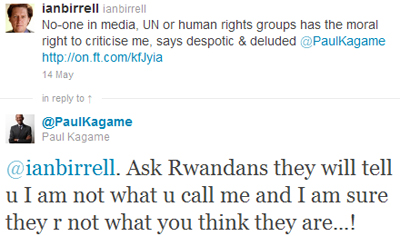
Rwanda’s Kagame and journalist get into Twitter spat
President Paul Kagame is a leader who draws sharply divided opinions–praise from some for rebuilding Rwanda after the 1994 genocide and criticism from others over a record of repression of dissent and the press. On Saturday, a tweet critical of Kagame by British columnist Ian Birrell sparked a heated exchange about press freedom between the…